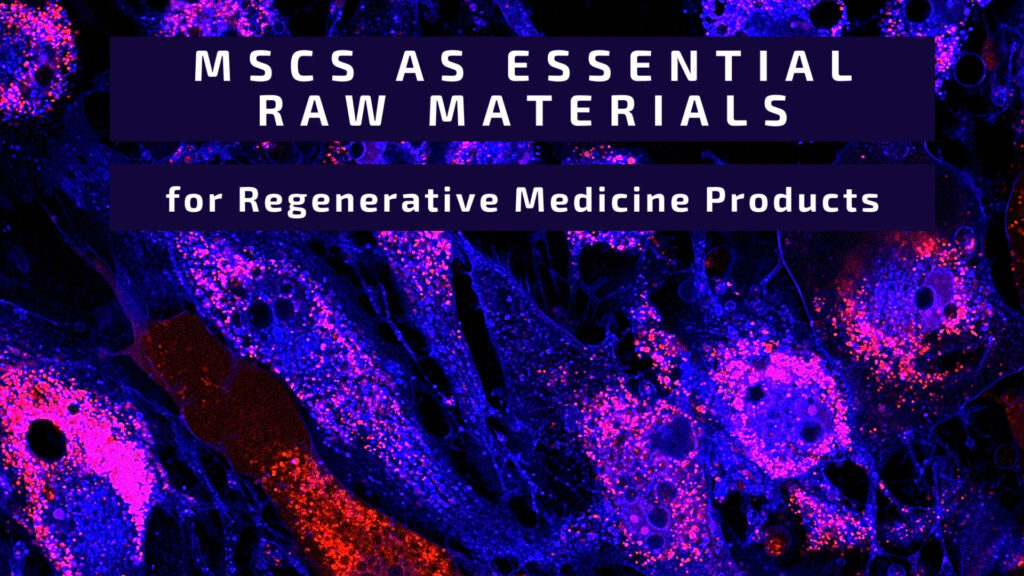MSCs are essential raw materials for many regenerative medicine products, including cell-based therapies, engineered tissues, cosmeceutical preparations, exosome products, and cultured meat. As of August 27, 2023, ClinicalTrials.gov lists at least 1,457 registered clinical trials involving MSCs, targeting a variety of indications ranging from graft vs. host disease (GvHD) to macular degeneration to osteoarthritis. Although ten MSC-based therapeutics have been approved for marketing in other parts of the world, the U.S. FDA is yet to approve an MSC product. Nonetheless, given their therapeutic potential for treating many indications and usage across a variety of applications, researchers believe that MSCs will support many important regenerative medicine advances.
One of the roadblocks to the commercial success of MSC-based therapeutics is the inadequate supply of MSCs for research, preclinical studies, clinical trials, and product development. Companies are still directing their efforts toward how to manufacture consistent product at scale, offer MSC products to patients in a way that maximizes their therapeutic efficacy, and design and execute successful clinical trials. Furthermore, there is mounting evidence that the short-term in vivo persistence of transplanted MSCs and the long-term therapeutic effects of MSCs may be mediated by the action of the exosomes that the cells release. This has led to the emergence of exosome therapy as a therapeutic modality, which is a cell-free alternative to the MSC therapy.
MSCs are also influencing the transformation of other industries and markets. Cosmeceutical companies such as L’Oréal and Johnson & Johnson are now investing heavily into the production of makeup and personal care products that leverage MSCs for their growth factors and cytokines. Additionally, several competitors within the clean meat industry are using muscle precursor cells (satellite cells) derived from MSCs to produce cultured meat products. The industry also uses MSC-produced fat (adipocytes) to enhance the taste of cultured meat products. On 17th November 2022, the U.S. FDA approved the first lab-grown chicken meat, and the company that achieved that landmark approval has a mission to manufacture 400,000 pounds of lab-grown meat every year.
In other major news, regulatory agencies within Canada and New Zealand have approved Prochymal (Osiris Therapeutics), which contains allogeneic bone-marrow-derived MSCs to treat steroid-resistant GvHD in children. South Korea approved two MSC products: one is an allogeneic umbilical cord blood-derived MSC-based product (Cartistem) to treat degenerative arthritis and another is an autologous adipose tissue-derived MSC product (Cupistem) to treat anal fistulas in patients with Crohn’s disease.
Alofisel (TiGenix and Takeda, approved in Europe), Temcell (JCR pharmaceuticals, approved in Japan), Heartsheet (Terumo, approved in Japan), and Cellgram-AMI (FCB-Pharmicell, approved in South Korea) are other products made containing MSCs. Another product candidate, MSC-100 IV from Mesoblast, is in a Phase III GvHD trial and received the U.S. FDA’s Fast Track Designation in 2017. By 2030, the U.S FDA is likely have approved 40 to 60 MSC therapeutic products, with the total number that reach commercialization depending on the success of the clinical trials which are now underway or being proposed.
The MSC industry is also witnessing a huge demand for cGMP bioprocess media and ancillary materials (AMs), such as reagents.
